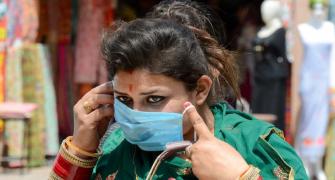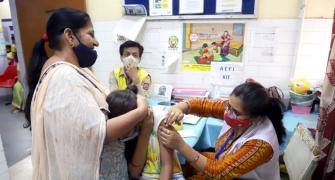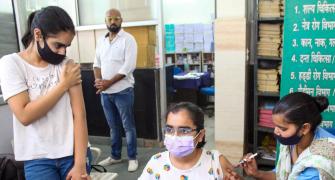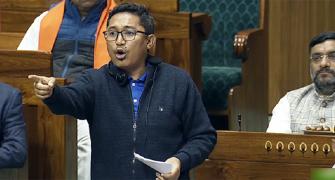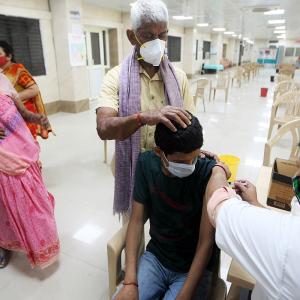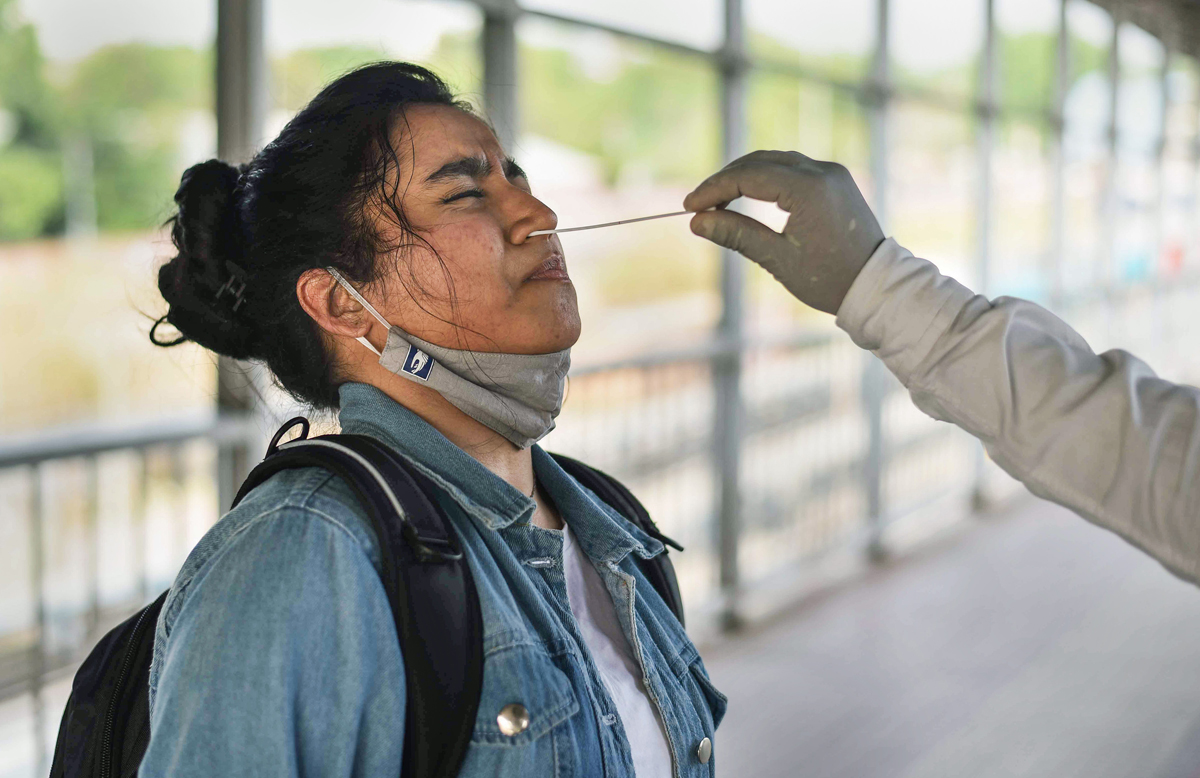'There will be ups and downs, and we have to plan how we live with it now.'
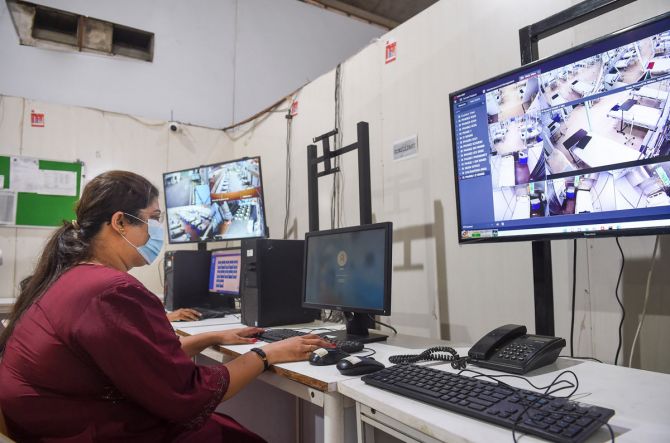
As India's Covid case count rises worryingly even as vaccination rates have remained low for a while, Dr Gagandeep Kang, microbiologist and professor at the Christian Medical College, Vellore, tells Sohini Das/Business Standard/ why she thinks there is no need for random testing and daily case counting anymore.
Some mathematical models have predicted a fourth wave of the pandemic around July-September. Where do we stand vis-à-vis such models?
On the question of COVID-19 and mathematical modelling to project the number of cases or the likelihood of waves in the future, I would like to highlight a few points.
When we model, we go by prior information.
We need the patterns of behaviour observed before for this particular pathogen and the infection in different groups.
A lot depends on what timescales we choose for which we predict what is going to happen.
Let's take a disease like influenza, which has been around and with a strong recorded history for at least 120 years. It is regularly monitored, and surveillance happens on emerging strains of this virus. However, if we want to say which strain will be the most dominant one next year, there are high chances that we would get it wrong.
It's very possible to get long-range predictions wrong using mathematical modelling.
Such modelling is most accurate when we know a lot about the disease and when we are not predicting too far into the future. In case of short-term modelling -- say, predicting how many cases are expected in the next two or four weeks -- chances are we will get it pretty accurately.
What we know by now is that somewhere in the world a new variant will arise at some point. And this will keep happening.
But what we do not know is where and when new variants would be spotted.
The next variants of Sars-CoV-2 will have to be more infectious, and would have more capacity to infect people than its predecessors.
This is because with more and more people getting vaccinated or infected, the upcoming variants would have to be 'better' than the previous ones at infecting people with some level of immunity.
So, the only thing epidemiologists and virologists can confidently say is that there will be new variants coming for this virus from somewhere and at some time.
What should be our strategy to deal with the virus from here on?
We need to think about what our efforts should be focused on at this time, not what needed to be done two years ago or last year.
If we want to find the last case of COVID-19 and identify or isolate which variant was responsible for causing the infection so that we can stop the spread of the virus, we know now that it is probably not a very practical idea.
We are not interested anymore in finding all cases of COVID-19.
We are rather interested in finding cases with serious disease, or new symptoms that we have not seen before.
From a public health or economic perspective, it does not make sense any longer to go after detecting every case of COVID-19.
Now we have reasonable control over this disease and its management, and thus devoting so much resources on one disease alone is, in my opinion, a privilege of a rich country or rich people.
As a society without unlimited resources, we have to see: Can children go to schools; can businesses run as usual?
Only when there is a situation when these things are likely to be affected, then we need to step in and take prompt action.
The more important thing to do now is to step up targeted surveillance, and spot clusters.
Wherever there is an increase in cases, get in there quickly, and find out the reason.
We are interested in knowing more about severe disease caused by this infection; clusters of infection that come to hospitals; suddenly 8-10 people dying of COVID-19 in one locality; any new symptoms that we have not seen before in COVID-19 patients.
The surveillance now needs to be epidemiological surveillance first -- detecting clusters and severe disease, and then backing that up by laboratory data or surveillance. It's not the other way round.
Just having laboratory data of COVID-19-positive cases is not enough. Many of these could be asymptomatic cases picked up during random surveillance, or people with mild disease.
This daily case-counting has to stop. The focus should be on unusual clusters, and unusual symptoms.
Has India reached an endemic stage for COVID-19?
Whether we are in the endemic stage depends on how we define endemicity.
COVID-19 disease is in the population and would be in the population for a very long time.
So, if we define endemicity by the above parameter, then Covid-19 has been an endemic disease for quite a while.
Typhoid, malaria and TB are also endemic in the population. We do see clusters of these diseases arising from time to time. We do not say then these have become a pandemic.
New variants have come, and will continue to come for Sars-CoV-2, and we cannot get rid of this disease for a long time to come.
Therefore, there will be ups and downs, and we have to plan how we live with it now.
Would you say we have achieved herd immunity?
On the question of herd immunity and whether India has achieved it, there are two ways to look at it.
If you think herd immunity means no infection will happen at all, then we will never achieve this, because this pathogen will be in the population causing infections.
But, if we define herd immunity as something where if enough people are protected in the population by previous infection and vaccination, then we do not see a lot of serious disease, then I think we have reached herd immunity.
If 'protection from disease' is our definition, then we have reached herd immunity here. We can keep topping up our boosters from time to time.
Take a look to two years ago -- where were we then and where are we today?
Is the disease behaving the same way as it was behaving some time back?
This is a different time because of vaccination and natural infection-led immunity, which allows us to handle the virus better.
If we consider Omicron in January 2022 in India, would we have had as easy a time if it had come 18 months earlier?
To me, this means that our herd is protected, but it does not mean that no one will get sick again.
Can unvaccinated children pose a threat to others -- of new mutations of the virus?
Around 80 per cent sero-positivity has been reported in children. If we look back, we know for sure that 80 per cent of India's children did not get severely sick.
When children get this infection, their immune system works to fight it, they are usually easily able to control infection well.
Therefore, chances of mutations happening in infected children and them spreading the virus to others are rare.
Introducing vaccines for children is fine in one sense, since there will be individual benefit, but are we doing the right thing or rushing to vaccinate without understanding what is really best for children?
As for choosing children's vaccines, we must not limit ourselves with the two to three options available here. We must expand our horizons and also consider all available children's vaccines across the globe.
Moreover, we need to monitor how children respond to vaccines over time -- let's say we give it to a 2 year old, then will he or she need another dose when he/she is 10 years old?
We have immunogenicity data on the available vaccines now.
We need to create a database on outcomes in children.
We need to monitor children we vaccinate for a period of time to track the incidences of disease in them.


